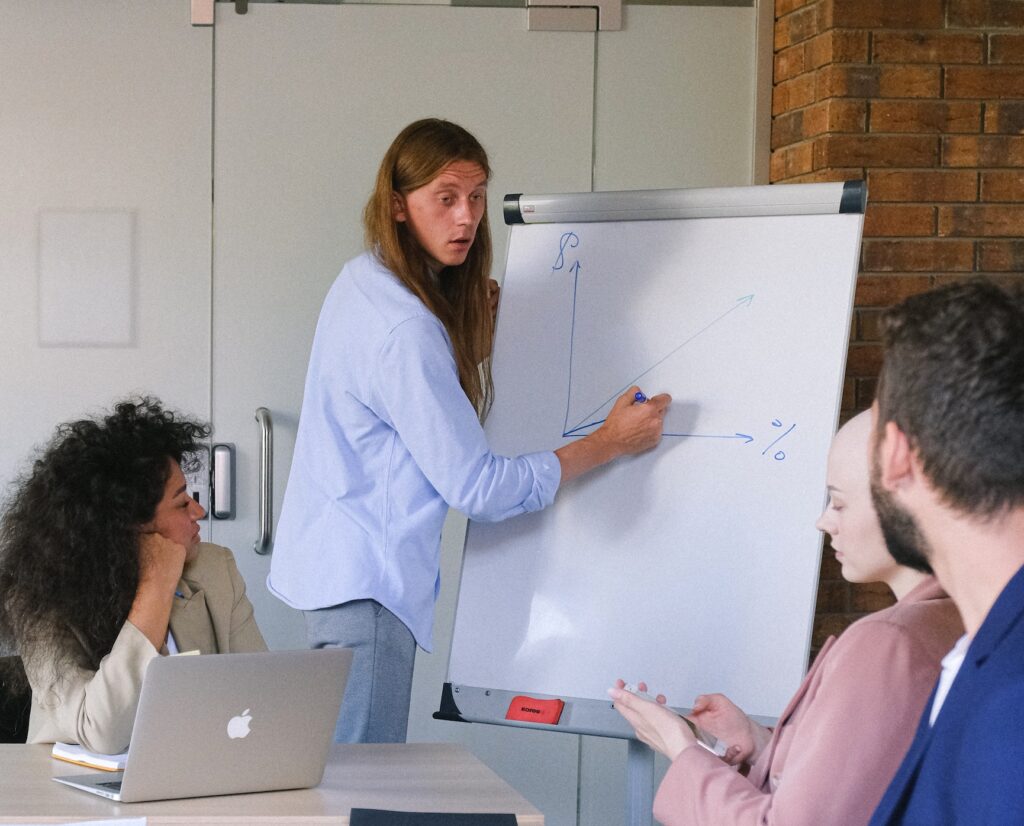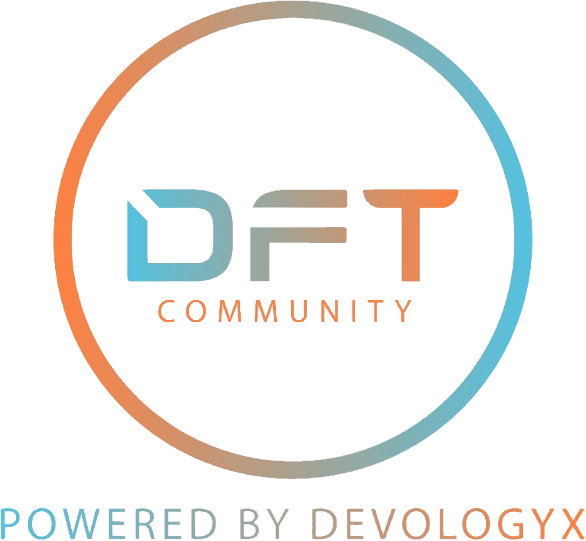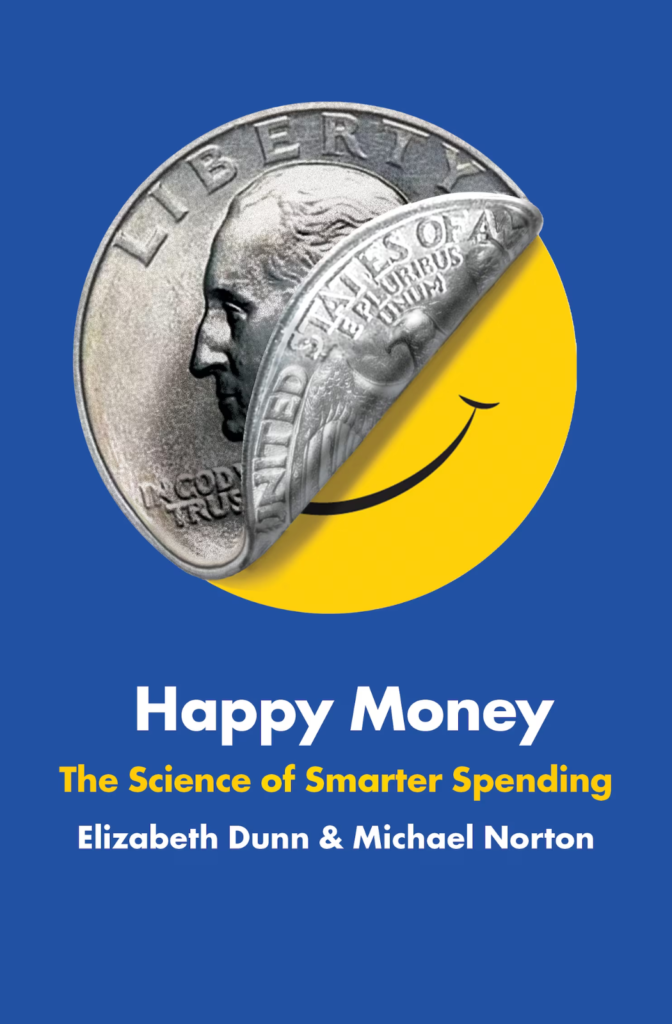Two professors, Elizabeth Dunn and Michael Norton merge attractive and state-of-the-art research in behavioural science to discuss how money can buy happiness only if you practice the five principles of intelligent spending. This book guides individuals seeking financial security and companies that want to create happier employees and offer more suitable products to their customers.
HOW THIS BOOK HELPED US?

Happy money gave us the impression that you can still draw more happiness from your money regardless of your account’s size. It’s not about how much you make but how you spend it. The book also helped us realise that material purchases bring you happiness. Still, this happiness tends to fade with time. Therefore, we should opt more for experiential purchases. Also, we should get along with the things we love less so we can derive more happiness and limit access to things we love so we can enjoy and appreciate them more.
THE BOOK EXPLAINED UNDER 60 SECONDS

The book explains how people develop rigid attitudes and behavioural patterns about money based on their background. They unconsciously carry these beliefs into adulthood, influencing whether they’re rich. Happy money presents the guiding principles that rich people live by to assist you in becoming rich if you adopt those principles. According to the book, money and happiness are linked. How you spend your money can determine your satisfaction regardless of your wealth. The five principles include: Buy experiences, Make it a treat, Buy time, Pay now and consume later, and Invest in others.
TOP THREE QUOTES

- “Looking back on their past decisions about whether to purchase experiences, 83 per cent of people sided with Mark Twain, reporting that their biggest single regret was one of inaction, of passing up the chance to buy an experience when the opportunity came along.”
- “The greatest thing you can do to change your life today would be to start being grateful for what you have.”
- “The same region of the brain that responds when we anticipate something good (the nucleus accumbens) loses interest once we’ve got it.”
BOOK SUMMARIES AND NOTES

Chapter one: Buy Experiences
Think of purchases you’ve made intending to increase your happiness. Consider one investment that was a material thing, a tangible object you could keep, like a piece of jewellery or furniture, clothing, or a gadget. Now think about a purchase that gave you a life experience—perhaps a trip, a concert, or a special meal. Like most people, remembering the incident brings to mind friends and family, sights and smells. Which of these experiences made you happier? You realise that experiential purchases make you more comfortable than material purchases. People cheer up their mood when they reflect on their experiential purchases, which most describe as money well spent. You don’t have to pay a large sum to capitalise on the principle of buying experiences. Even with a few dollars, you can get a more lasting pleasure from purchasing experience compared to buying a material thing. People who spend more money on leisure report greater satisfaction with their lives than those who spend more on earthly things. Therefore, to increase your overall happiness, find unique experiences to purchase that associate you with other people and are linked to your sense of self. And most of the time, you never regret making an experiential purchase.
Favourite quote of the chapter: “Looking back on their past decisions about whether to purchase experiences, 83 per cent of people sided with Mark Twain, reporting that their biggest single regret was one of inaction, of passing up the chance to buy an experience when the opportunity came along.”
Chapter two: Make It a Treat
It’s wise to go along with the things you love less often to derive more happiness from them. Limiting your access to things you like may assist in energising your enjoyment and appreciation of them. When you’re used to having something all the time in extensive quantities, you get liable to enjoy and appreciate them less. The greatest thing you can do to change your life today would be to start being grateful for what you have. Occasionally growing accustomed to something can be positive, like familiarising yourself with the cold in the winter, much as it can rob your joy. To ensure that the things you love do not lose their appeal, make them a treat rather than turning them into a routine.
The fact that money gives you more abilities to experience great things usually makes you miss out on small things because you expect and want more without fail. Research at Yale made people predict how long their pleasure in various new material things might last. Most acknowledged that the joy would reduce gradually.
Favourite quote of the chapter: “The greatest thing you can do to change your life today would be to start being grateful for what you have.”
Chapter three: Buy Time
Time and money are frequently interchangeable. Instead of spending more time on something, you could pay extra cash and finish it quickly. But people usually sacrifice their time to save small amounts of money. Many wish they had more free time to work out or play the guitar. In this context, using the money to buy more of this time is realisable. Wealthier people do not spend their time in more enjoyable ways. They usually spend time on activities linked with high stress and tension levels. It could be working, shopping and commuting. People who feel they have sufficient time are usually happier. The money you spend in ways that can buy you time can significantly increase your happiness. Especially if you are being relinquished from things you do rather than enjoy doing. Purchasing money takes work. Taking this principle seriously means rethinking daily expenditures and transforming money into time decisions. This is a mental backflip that makes people more inclined toward happy choices. Companies that utilise this idea usually reshape their policies and products, enabling their employees and customers to draw more happiness from the minutes and hours of daily life.
Suggestions to buy time include moving closer to work to reduce commutes, purchasing a Roomba for those who do not enjoy vacuuming and utilising a grocery delivery service for those who do not enjoy grocery shopping.
Favourite quote of the chapter: “People who feel they have sufficient time are usually happier.”
Chapter four: Pay Now, Consume Later
The rise of credit cards has not only allowed us to pay without cash but also to pay our bills at a later stage—pushing the payment into the indefinite future, with a long-term effect. You’ll be happier if you follow a different approach: pay now and consume later. Consuming later, while going against our instincts and barely promoted by society, can be one of the most rewarding changes we can make. The anticipation of purchase can often provide more enjoyment and fulfilment than the purchase itself. This applies to both material and experiential purchases. The process of now and paying later can be reversed by paying up front and delaying consumption. You can purchase more happiness even when you spend less money. Since delaying consumption allows a spender to harvest the pleasures of anticipation without the buzzkill of reality, vacations provide the most happiness before they occur. You feel happier before buying a latte than during and after consuming it.
The power of now propelled the drive to consume now and to pay later. Because there’s no time as evocative as the present, we are motivated to expedite the good (consumption) and postpone the insufficient (payment).
Favourite quote of the chapter: “Because uncertainty can magnify both positive and negative emotions, delaying consumption is a safer strategy for purchases that inspire purely positive feelings—purchases that are delightful rather than, say, complicated.”
Chapter five: Invest in Others
Rather than considering the different ways you can spend your money on yourself to maximise your own happiness, consider investing it in others. Spending money on others can increase your enjoyment even more than spending cash on yourself. Still, you must be willing to make yourself a little poorer to reap the benefits. Even when you give in small amounts, you can still be happier. You’ll receive more happiness from providing when it’s your choice. This creates a connection between the people we deliver to and us, and it makes a clear impact on a critical cause to us too.
Research shows that the nature of the giving situation matters. Investing in others can take a seemingly limitless variety of forms, from donating to a charity that helps strangers in a faraway country to buying lunch for a friend. When does giving promote the most happiness? Understanding the answer to this complex question can help us get the biggest happiness bang for our prosocial buck—and can help us create positive giving experiences for our children, clients, customers, and employees. Below, we describe three strategies designed to boost the impact of investing in others: make it a choice, make a connection, and make an impact.
Favourite quote of the chapter: “You’ll receive more happiness from giving when it’s your choice.”
HOW CAN THIS BOOK HELP SOFTWARE DEVELOPERS
Happy Money provides insights into how spending money can bring greater happiness and satisfaction and offers practical strategies to help individuals optimise their spending. This can be useful for software developers in managing their finances and making intentional spending choices that align with their values and goals, ultimately contributing to a more fulfilling and satisfying life both personally and professionally. This book can help software developers by providing insights on how to spend money in ways that bring lasting happiness. This book can help software developers by offering insights on how to spend money in ways that bring everlasting joy.


